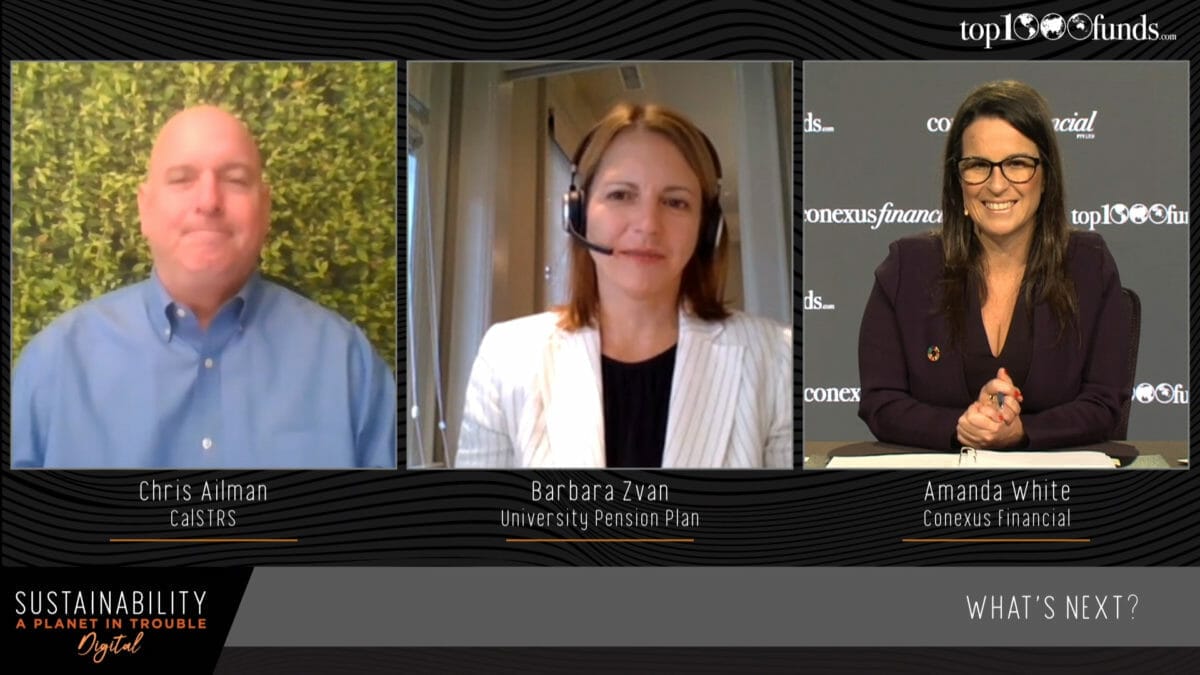The Oxford Sustainable Finance Programme at the University of Oxford has established a new research theme on The Future of Engagement, that will look at how to achieve greater success in engagement. Director of the program, Ben Caldecott, explains how emerging technologies, changing client preferences, new regulatory landscapes, and evolving economic geographies create new opportunities for more effective engagement and forms of active ownership.
Investors, from the largest institutions such as pension funds, insurers and sovereign wealth funds to the smallest millennial retail saver, are increasingly concerned with ensuring their investments across different asset classes have smaller environmental footprints and that these become better aligned with different environmental thresholds.
Effective engagement and active ownership are arguably one of the very few ways investors in large listed equities markets can have any positive (or negative) impact on the real economy. It is, therefore, incredibly important for improving the environmental performance of companies and assets.
Yet there are pervasive collective action problems in effectively executing concerted and coordinated engagement strategies with other like-minded investors. Further, investor influence on companies and their environmental footprints differs enormously by asset class, sector, and geography, as well as by the size and reputation of the investors in question. These differences are often glossed over.
These are familiar problems and some progress has been made to improve engagement. But much more needs to be done and done quickly in order to secure the implementation of the Paris Agreement and the Sustainable Development Goals.
To secure a step change in the efficacy of investor engagement for securing lasting sustainability outcomes, the Oxford Sustainable Finance Programme at the University of Oxford has established a new research theme on The Future of Engagement.
Fortunately, emerging technologies, changing client preferences, new regulatory landscapes, and evolving economic geographies create new opportunities for more effective engagement and forms of active ownership.
As part of the project we will looking at some of these topics:
Engagement in asset classes beyond listed equities
There are many opportunities for effective change to be driven by investors through their holdings in different asset classes. We are interested in some of the following questions: how does the form and function of engagement differ by asset class? How should investors prioritise engagement in different asset classes and how might this differ by the type of institution? How could coordinated engagements across asset classes (‘full spectrum engagement’) work, and how could it help to achieve desired outcomes more quickly?
Measuring engagement performance
There is a distinct lack of research in this area, so fundamental questions can be explored to provide new insights, including questioning who should be doing the measurement, with what public/proprietary data, and whether measurement should focus on engagement outcomes or processes. The focus on measurement can also link to broader questions of whether and how engagement is incentivised and encouraged throughout the investment system.
Fintech innovation
New fintech products and services are disrupting incumbents. Examples include the OpenInvest web platform which facilitates manager selection, PensionBee which allows the amalgamation of pension pots (potentially giving a louder voice to retail investors), and technologies which facilitate virtual AGMs (with the power to redefine corporate-investor communication and engagement spaces and practices). How can fintech change existing engagement practices and open up new approaches to engagement in the near future? Can fintech be used to track voting patterns, fund manager performance on engagement, and engagement outcomes? Can fintech be used to reduce climate-related information asymmetries between market actors, and how this data can inform corporate engagement? How can fintech redefine the geographies of corporate engagement?
Regulatory reform
There is significant momentum gathering behind sustainable financial regulation and policy reform in Europe and in other jurisdictions. We will explore how these reforms might affect the scale and scope of shareholder engagements throughout the investment system and across different geographies.
New markets
Much of the dialogue and academic research on engagement is focused on listed equities in the US, Canada, Europe, Japan, and Australia. How do engagement questions/issues differ geographically, particularly in emerging economies?
Behaviour and game theory
Novel insights into engagement strategies and effectiveness can be gathered through the application of behavioural finance and game theory. Can we secure new insights through behavioural experiments? Can game theory be used to optimize engagement strategies over the long term?
Newly available data
Developments in artificial intelligence, when combined with new and existing datasets, augur ultra-transparency that will upend the current information asymmetries that exist between companies and their investors, and between financial institutions and their regulators. This has huge potential to help align the financial system with environmental sustainability. New data can contribute to and further shape shareholder engagement practices and processes. Could this potentially drive more timely and targeted engagements?
‘Place-based’ engagement
Instead of engaging with boards and management on topics related to process, governance, or incentives at a parent company-level, could parallel engagement strategies become much more targeted and localised? For example, focusing on achieving specific sustainability outcomes in specific places and industries in a defined time period, taking account of local context and local levers of influence available to investors and investor coalitions
Theoretical, technological, regulatory, and practical changes can shape active ownership for the better and The Future of Engagement project will systematically explore these issues and identify specific ways to achieve greater success much more quickly. We need to achieve a step change in the quality and efficacy of engagement across asset classes, sectors, and geographies. This is essential if finance is going to work for both people and planet.
Dr Ben Caldecott is founding director of the Oxford Sustainable Finance Programme and an associate professor at the University of Oxford, as well as co-chair of the Global Research Alliance for Sustainable Finance and Investment.




